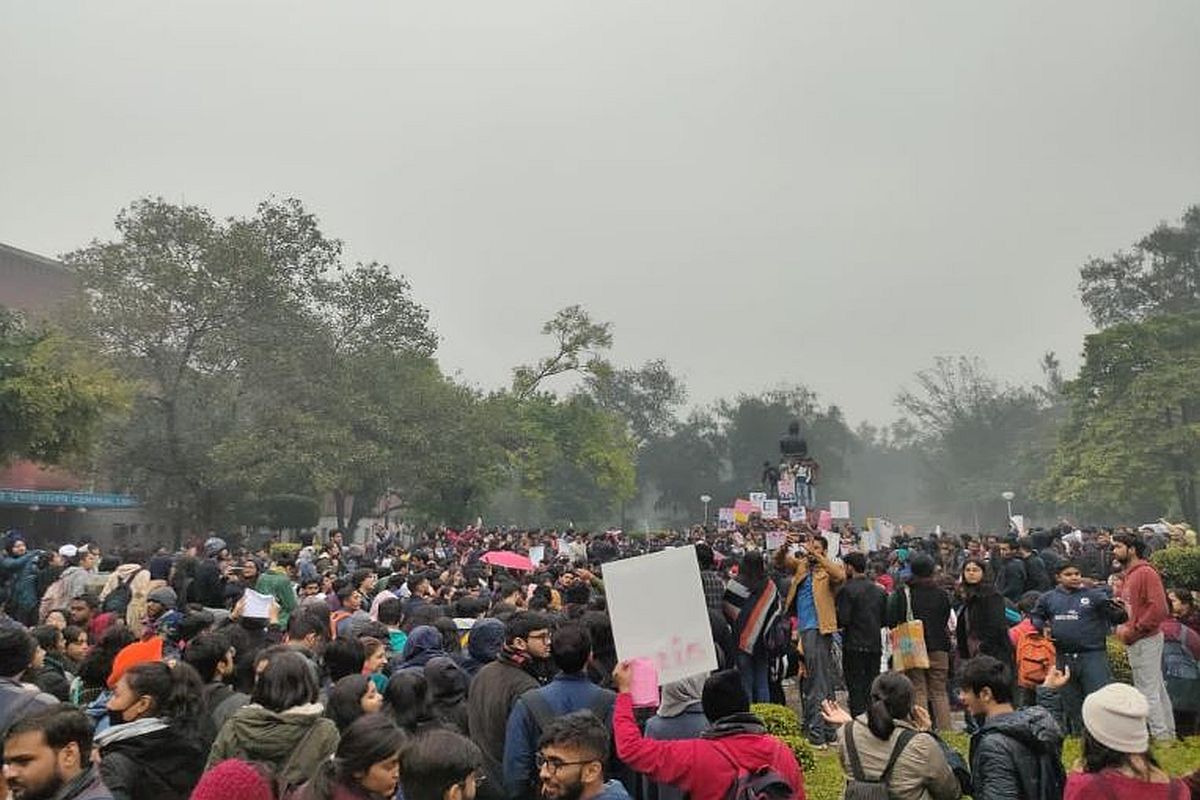The call for Bharat Bandh by trade unions — affiliated to Left parties and the Congress — against the “anti-labour” policies of the government, has remained largely peaceful except for a few incidents of violence being reported from West Bengal.
Trade union leaders have claimed the government has failed to tackle challenges posed by a crisis-ridden economy and is, instead, busy privatising and selling public sector units (PSUs). The government’s actions are “detrimental to the national interest and national development,” they have said.
Advertisement
Apart from the CITU, nine other trade unions that are a part of the strike are Indian National Trade Union Congress (INTUC), All India Trade Union Congress (AITUC), Hind Mazdoor Sabha (HMS), All India United Trade Union Centre (AIUTUC), Trade Union Coordination Centre (TUCC), Self, Employed Women’s Association (SEWA), All India Central Council of Trade Unions (AICCTU), Labour Progressive Federation (LPF), United Trade Union Congress (UTUC).
In Bengal, train tracks were blocked by protesters in Howrah and Kanchrapara in North 24 Parganas district as several Left supporters held a “Rail Roko protest”. Crude oil bombs were found on tracks, said railway police.
Violence broke out in Bengal as a police vehicle was targeted in Jadavpur and CPM MLA Sujan Chakraborty was detained. A scuffle was reported between the workers of CPM and Trinamool Congress workers.
Meanwhile, the Left has accused Chief Minister Mamata Banerjee of doublespeak after the state government said it would not support the strike.
In Odisha, the Bharat Bandh affected road and rail traffic in Talcher, Bhubaneswar, Brahmapur, Bhadrak and Kendujhargarh.
In Tamil Nadu’s Chennai, where the ruling AIADMK is not supporting the strike, several protesters were detained when they tried to block roads. The government authorities have denied leaves to employees participating in the protest.
Police in Andhra Pradesh arrested leaders of the Left parties and trade unions as they tried to stop state-owned buses and staged road blockade as part of the nation-wide shutdown.
Thousands of members from at least ten trade unions protested in Delhi against the Centre and extended their support to the all-India shutdown by trade unions.
Gathered at the Shaheed Park, the members walked towards the ITO intersection and blocked a section of Bahadur Shah Zafar Marg.
Holding red trade union flags and braving the winter drizzle, the protesters shouted slogans “Stop attacking students”, “Stop attacking universities”, “India belongs to us”, “Stop dividing us”, and “NRC, CAA, NPR will not be allowed”.
However, traffic in Delhi remained largely unaffected.
The Bharat Bandh call had a mixed response in Uttar Pradesh. There were no reports of any violence from any part of the state.
The impact of the strike was marked by apprehensions of violence and a sizeable number of shops did not open in the morning. However, as the day wore on, shops opened though banks, BSNL employees, power employees and other trade unions boycotted work.
UP had been put on high alert with heavy deployment of security across the state.
The nationwide shutdown evoked a mixed response in Punjab, Haryana and Chandigarh as well amidst rains. No untoward incident was reported from anywhere in the state.
Activists of several farmer associations were seen asking traders at several places in Punjab and Haryana to keep their shops and business establishments closed to mark the pan India protest.
The pan-India shutdown call showed little impact in Bengaluru as it turned out to be a normal working day.
The Uddhav Thackeray government in Maharashtra has supported the Bharat Bandh called by various trade unions.
In its mouthpiece Saamana, the ruling Sena today said: “Six months have passed since the present (BJP) government was formed (at the centre) and neither industries nor the condition of the labourers improved.”
Lakhs of workers in large number from government, private sectors, banks and other establishments joined the nationwide trade shutdown.
In Bihar, hundreds of vehicles were left stranded at many places after CPI-M activists blocked the Patna-Ara highway.
Meanwhile, the countrywide general strike has impacted front-end banking services like cheque clearing and deposits in varying degrees.
Services like deposits and withdrawals, cheque clearing and instrument issuance are expected to be impacted further owing to the day-long strike.
Netbanking services, however, are least likely to be affected. The Reserve Bank of India (RBI) has already made online NEFT transfers around-the-clock process and also waived off charges.
A day before the strike, the Government had warned the trade unions of “consequences” if they joined the strike. “Any employee going on strike in any form would face the consequences which, besides deduction of wages, may also include appropriate disciplinary action,” an order issued by the Ministry of Personnel on Tuesday said.











